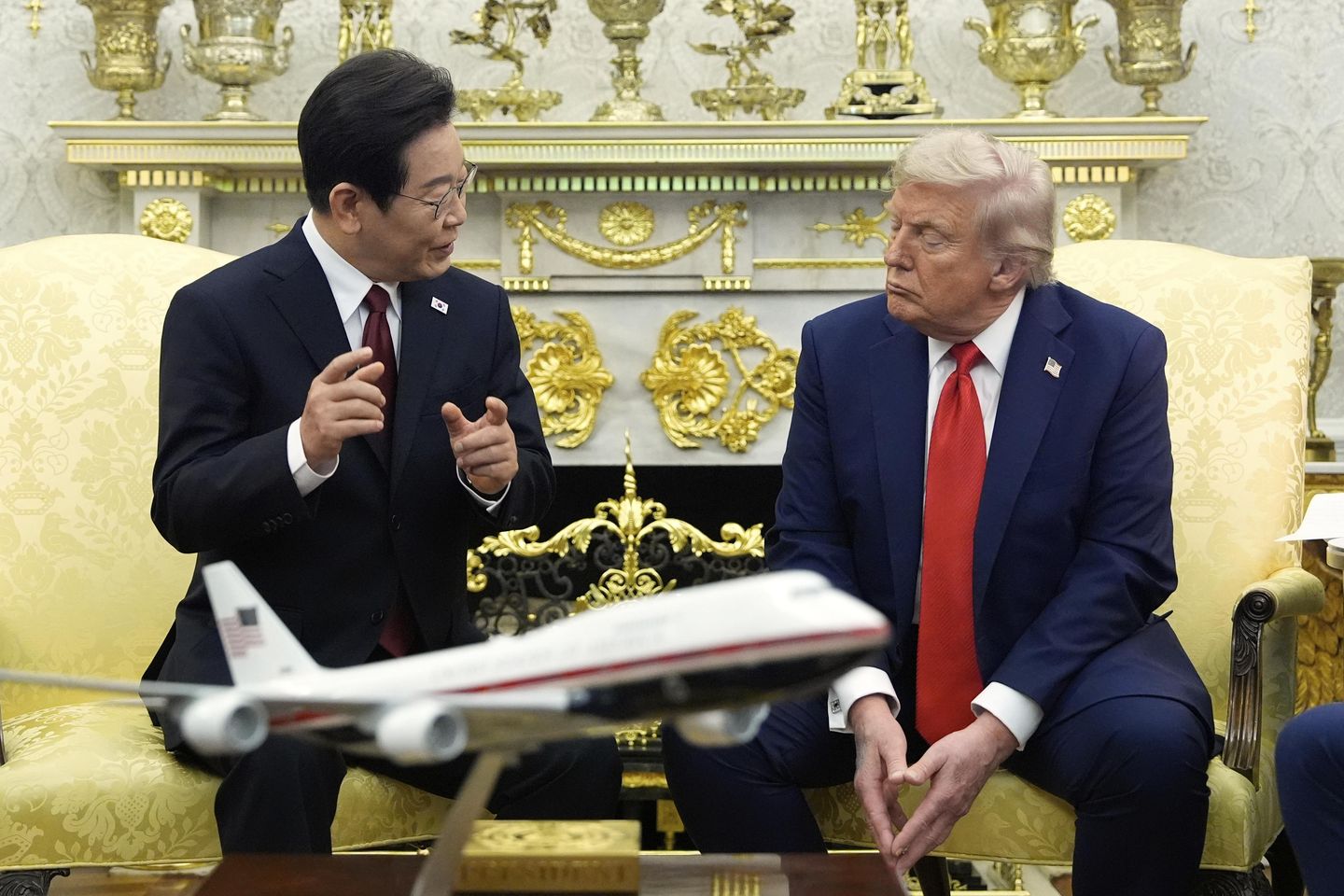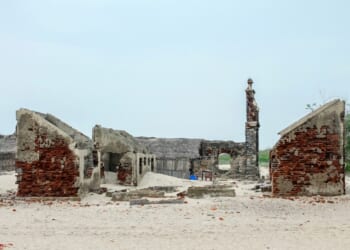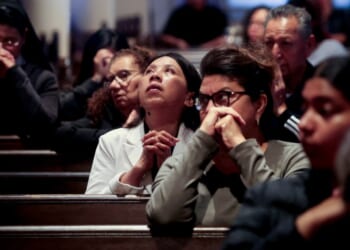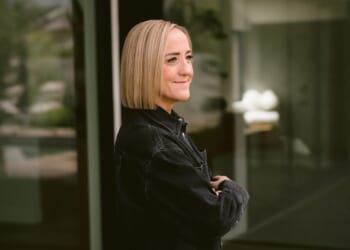
South Korean President Lee Jae-myung said his staff feared that President Trump would ambush him about his government’s raids on churches and turn his Oval Office meeting into a “Zelenskyy moment,” describing Mr. Trump’s comments as “very threatening.”
Despite the fears, Mr. Lee said his meeting with Mr. Trump turned out “beyond my expectations” and that their discussions exceeded the allotted time. He described the U.S. president as encouraging.
In South Korea, there was a collective sigh of relief after the Lee-Trump summit went off far better than had been feared. Mr. Lee — formerly a hard leftist who announced a U-turn to the center right in February — appeared to be well briefed on how to handle Mr. Trump, and their meeting proved jocular, with jokes and repartees with reporters.
“The summit went down without a public showdown which, given the verbal skirmishes leading up to it, was a small victory for President Lee,” said Jenny Town, director of the Stimson Center’s influential online platform 38 North, which specializes in North Korean analyses. “One hurdle tackled.”
Before Mr. Lee’s arrival at the White House on Monday, Mr. Trump raised questions about South Korea’s investigation into its former president, Yoon Suk Yeol, which has ensnared several churches in the country. The U.S. president vowed to press his South Korean counterpart on the issue.
“What is going on in South Korea? Seems like a purge or revolution. We can’t have that and do business there,” Mr. Trump posted on Truth Social.
Mr. Trump also told reporters that he heard “bad things” from U.S. intelligence about what he described as “very vicious” church raids and that he would get to the bottom of it with Mr. Lee.
That touched off fears among South Korean officials, including Mr. Lee’s staff, that his Oval Office meeting would be a repeat of the tense and acrimonious meeting in February between Mr. Trump and Ukrainian President Volodymyr Zelenskyy, which degenerated into a shouting match.
“Before I met with President Trump, he posted on Truth Social a very threatening post, which I felt,” Mr. Lee said late Monday at an event at the Center for Strategic and International Studies.
“And then during the press gaggle, he mentioned about the Korean government’s investigations regarding the previous government and he mentioned that he would look into the search and seizure of U.S. bases. And so my staff was worried that we might face a ‘Zelenskyy moment,’” Mr. Lee said.
The South Korean president said he believed Mr. Trump’s comments were a negotiating technique. Both leaders continued to hammer out a trade deal between the U.S. and South Korea.
“This was the pattern that I observed in his previous negotiations with other countries. And because of the importance of the Korea-U.S. alliance, I was confident that he would not inflict a wound to our alliance,” Mr. Lee said.
He said that his private conversation with Mr. Trump focused on strengthening economic ties between the two nations and how to “modernize” the U.S.-South Korea security agreement. He did not say if the raids on churches were discussed.
Mark Montgomery, a senior fellow at the Foundation for Defense of Democracies, said Mr. Trump was playing to his base by raising the issue of the raids on churches. He said the U.S. president has cast himself as a defender of religious freedom.
“I think he brought it up for domestic purposes in the United States,” Mr. Montgomery said. “It’s a good issue for the president. I think for Lee, I don’t believe it is an issue that will be destabilizing.”
The White House and State Department declined to comment on the meeting.
Chun In-bum, a retired South Korean general who has fretted about the future of the bilateral alliance, praised Mr. Lee for keeping the meeting from exploding.
“There were a lot of concerns about a confrontation when these two met as they are so different in background and values, but Lee Jae-myung was able to sidestep a lot of issues and turned it into a meet-and-greet occasion,” he said.
Relief at the summit’s good vibes did not fully overcome the shock in some quarters that Mr. Trump had deployed such an incendiary Truth Social post hours before the meeting. The move stunned South Korea, with editors placing it on top of online news pages, while ripples raced across social media.
“It is beyond imagination that there is such a strong network of ultra-rightists between Seoul and D.C. capable of reaching out to the president of the U.S.,” said Choi Jong-kun, deputy foreign minister under the previous liberal administration of President Moon Jae-in. “We see this mantra in Gwanghwamun every Saturday; seeing it hours before the summit, I almost had a heart attack.”
Central Seoul’s Gwanghwamun intersection is where right-wing, predominantly Christian supporters of Mr. Yoon mass to protest on weekends.
The conservative former president, who declared martial law briefly in December and was subsequently impeached, is now detained with his wife. They are facing multiple investigations that have led to prosecution raids on targets, including churches and military bases.
Unlike the protesters, Mr. Yoon’s conservative People Power Party has accepted the results of the June election that saw Mr. Lee win the presidency. So, too, have the mainstream media, the judiciary, the bureaucracy and the academy.
For true believers in the election conspiracy, the last hope is the U.S.
Mr. Lee “was elected by election fraud and most of his lawmakers were elected by fraud,” said Yoon Kyung-byung, an academic connected to the Gwanghwamun protest organizers. “The National Electoral Commission has somehow gone over to organized crime, supported by China.”
He was disappointed at the upbeat summit.
“South Koreans are almost helpless,” he said. “We think U.S. Republicans are the only ones who can solve this: We had expected a kind of ‘General MacArthur Inchon landing miracle.’”
In September 1950, when all but a besieged perimeter in South Korea’s southeast had been captured by North Korean forces, U.S. General Douglas MacArthur unleashed an amphibious landing at the port of Inchon in the northwest. The surprise attack dislocated North Korean forces, turning the tide of the Korean War, until China’s equally surprising intervention late in October.
South Korea’s former president, Mr. Yoon, was removed from office in April. He was arrested in July over his brief imposition of martial law. The investigation into Mr. Yoon’s activities led South Korean officials to probe Osan Air Base, a military facility that operates jointly with the U.S.
Speaking Monday at the White House, Mr. Lee said authorities had not conducted a search and seizure. Instead, he said it was an investigation into his country’s military chain of command following Mr. Yoon’s declaration of martial law.
Osan was the target of a raid last month by investigators looking into how Mr. Yoon’s activation of martial law came about, according to South Korean media. South Korean officials have insisted the raid was in the areas controlled by Seoul.
Mr. Lee’s liberal government has expanded its investigations into Mr. Yoon and his wife, former first lady Kim Keon-hee, to include churches with ties to the couple. They are the first former presidential couple to be jailed simultaneously over criminal allegations in South Korea.
Seoul police this month raided Sarang Jeil Church, headed by evangelical preacher Jun Kwang-hoon, who led protests in support of Mr. Yoon. The raid was spurred by a police investigation into pro-Yoon activists who stormed a court in late January after it extended Mr. Yoon’s detention.
A bribery probe into Ms. Kim has also entangled the Family Federation, formerly known as the Unification Church. The Federation is accused of offering bribes to the former first lady before Mr. Yoon’s inauguration in exchange for political favors.
A former Federation official is alleged to have sent gifts worth more than $14,000, including a Chanel handbag and fancy jewelry, to Ms. Kim, according to South Korean media reports. In exchange, the official wanted Mr. Yoon’s government to support a development project in Cambodia, the acquisition of a South Korean news channel and an invitation to Mr. Yoon’s inauguration.
A Federation spokesperson earlier this year denied the allegations and said it was cooperating with the government probes.
On Tuesday, Rev. Demian Dunkley, a Federation spokesperson, hailed Mr. Trump’s comments. He said the president is “the strongest global advocate for religious freedom.”
“At a time when sacred grounds and leaders of major Christian movements in Korea, including Dr. Hak Ja Han Moon, have faced unprecedented and unfair government pressure, President Trump’s clear voice has brought hope and international attention to the cause of religious freedom in South Korea,” Mr. Dunkley said in a statement.
The Federation has several business and media interests, including The Washington Times.
Last month, the Full Gospel Church in Yeouido, Seoul, was raided by special prosecutors investigating suspicions that its pastor had connections to figures associated with the alleged cover-up of the accidental death of a Marine in 2023.
• Andrew Salmon reported from Seoul.

















